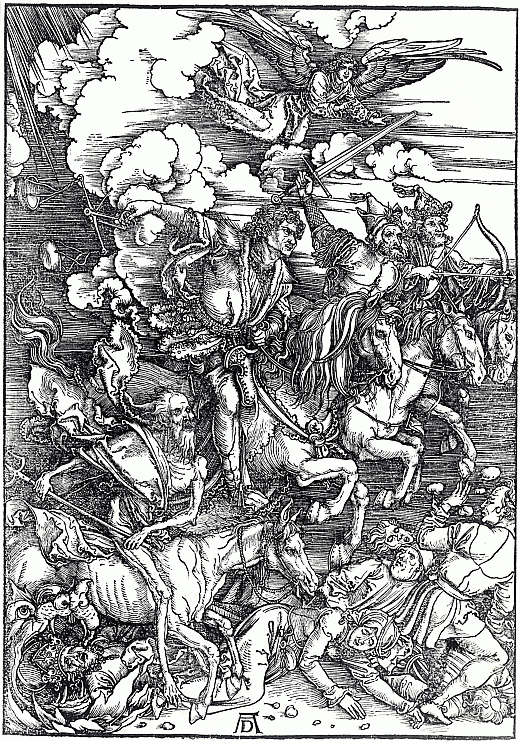
Wie manche schöne Statt,
Die sonst das gantze Land durch Pracht gezieret hat,
Ist jetzund Asch unnd Staub? Die Mauren sind verheeret,
Die Kirchen hingelegt, die Häuser umbgekehret.
Wie wann ein starcker Fluß, der unvorsehens kömpt,
Die frische Saate stürtzt, die Aecker mit sich nimpt,
Die Wälder niderreißt, läufft auszer seinen Wegen,
So hat man auch den Plitz und schwefelichte Regen
Durch der Geschütze Schlund mit grimmiger Gewalt,
Daß alles Land umbher erzittert und erschallt,
Gesehen mit der Lufft hin in die Stätte fliegen;
Deß Rauches Wolcken sind den Wolcken gleich gestiegen,
Der Feuerflocken See hat alles überdeckt
Und auch den wilden Feind im Lager selbst erschreckt.
Das harte Pflaster hat geglüet und gehitzet,
Die Thürne selbst gewanckt, das Ertz darauff geschwitzet;
Viel Menschen, die der Schaar der Kugeln sind entrannt,
Sind mitten in die Glut gerathen und verbrannt,
Sind durch den Dampff erstickt, verfallen durch die Wände;
Was übrig blieben ist, ist kommen in die Hände
Der ärgsten Wüterey, so, seyt die Welt erbaut
Von Gott gestanden ist, die Sonne hat geschaut.
Der Alten graues Haar, der jungen Leute Weynen,
Das Klagen, Ach und Weh der Groszen und der Kleinen,
Das Schreyen in gemein von Reich und Arm geführt
Hat diese Bestien im minsten nicht gerührt.
Hier halff kein Adel nicht, hier ward kein Stand geachtet,
Sie musten alle fort, sie wurden hingeschlachtet,
Wie wann ein grimmer Wolff, der in den Schaffstall reißt,
Ohn allen Unterscheyd die Lämmer nider beißt.
Der Mann hat müssen sehn sein Ehebette schwächen,
Der Töchter Ehrenblüth’ in seinen Augen brechen,
Und sie, wann die Begier nicht weiter ist entbrandt,
Unmenschlich untergehn durch ihres Schänders Hand.
How many a beautiful city,
Which once ornamented the whole country with its splendor,
Is now but dust and ashes? The walls are devastated,
The churches pulled down, the houses toppled.
As if a strong river, coming from nowhere,
Plunges over the freshly sown earth, ripping the fields with it,
Tears down the forrest, running outside of its banks,
So we experience the lightening and sulfurous rains
Brought by cannons’ gullets with their furious power,
It makes the countryside quake and resonate,
Flying with the air itself into the cities;
Clouds of smoke climb to the heavens as clouds themselves,
A sea of gunfire cinder covered everything
Startling even the wild enemy in his camp.
Hardened plaster glowed and heated,
The towers themselves shook, the metal fixtures began to sweat;
Many men, who fled before the hail of gunshot
Fell into the midst of the conflagration and burned,
Or suffocated in the smoke, or fell through the walls;
And what remained came into the hands
Of the vilest outrages, so, as the world was made,
Crafted by God, and the sun shined down upon it.
The gray-haired elderly, the wailing of the young,
The lamentations, cries and shouts of the great and small alike,
The common cries of rich and poor, yet none
Touched these beasts in the least.
It availed no one to be a noble, no social position was observed,
All had to flee, and all were slaughtered,
As if a ferocious wolf had torn into the sheep pen,
Ripping the throats of the lambs indifferently.
Must the man not have seen that he laid waste to his own marriage bed,
That he pierced the virginity of daughters with his eyes,
And they, when lust flares up no more,
Perished inhumanly by the hand of their violators.
—Martin Opitz, Trost-Gedichte jn Widerwertigkeit dess Krieges: Erstes Buch (1633) in: Martin Opitz’ weltliche und geistliche Dichtung (1889), pp. 273-74 (S.H. transl.)


